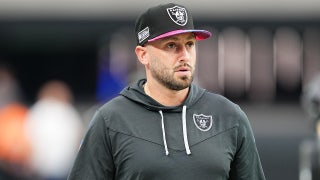Philadelphia, PA (SportsNetwork.com) - Not many professional football organizations have enjoyed the benefit of longevity at the managerial position, but Manchester United is not like other clubs.
After a heavenly 26-and-a-half-year spell under Sir Alex Ferguson - a stretch that oddly enough began with sizable turmoil - the Red Devils were made to come back down to reality when the legendary Scottish manager called it quits at the end of last season.
David Moyes, handpicked by Ferguson, became the club's next manager, and he, too, endured tumult in his United career.
But United, an entity that has prided itself on building the club organically while other wealthy sides hastily chopped and changed and threw money at the next flavor-of-the-month manager, afforded Moyes the patience to put his stamp on the team.
The patience, though, apparently wore thin as United made a change on Tuesday, parting ways with Moyes just 10 months into his six-year contract.
Moyes' departure not only says a great deal about Manchester United, but also about Ferguson.
First, the amount of time afforded to Moyes is a testament to United's conviction.
Moyes was appointed to the post at Ferguson's request, and even as United dropped out of the title race and out of the race for fourth, the club stood by the man in charge. The club even gave Moyes a vote of confidence by providing him with a sizable transfer budget to sign Juan Mata in January for a club-record fee.
While many, including United player-turned pundit Gary Neville, have bemoaned the lack of patience for managers in today's game, speculation surrounding Moyes' job began early in the season and gained steam in January after a stretch of six defeats in eight games across all competitions. But United's refusal to make a snap judgment has proven the club to be more patient than, say, Manchester City or Chelsea, two entities building reputations for high managerial turnover.
The move also speaks volumes about Moyes' predecessor, the immortal Ferguson.
Ferguson has become a celestial figure at the club. There is an entire stand of seats at Old Trafford named after the man, and his statue stands outside the ground like the Cristo Redentor statue high atop the city of Rio de Janeiro in Brazil.
It would not be off-base to suggest that Ferguson nominated Moyes, a man with no silverware to his name despite having 17 years of managerial experience, as his successor with the knowledge that he would struggle.
The entry point for Ferguson's successor must be taken into account, and that the Scot attained so much success for such a long period of time means that the bar was set impossibly high for Moyes.
The former Everton boss was in precarious position from the start of his United career. He adopted a squad in need of a shake-up, but one that had won the title in the previous campaign. Consider that for a moment: How often does a title-winning team need major changes before the start of the new season? Even if United had enjoyed success under Moyes this term, it would have been with a team that Ferguson assembled.
Moyes was handcuffed even further by the departure of United chief executive David Gill. Virtually all continuity from Ferguson's support staff was erased, and it showed as Moyes and Ed Woodward (Gill's replacement) struggled to navigate the summer transfer window.
That Moyes' arrival coincided with the departure of a legend, the adoption of an overachieving squad and the appointment of a novice chief executive meant that Ferguson's status as a mythical manager remained in tact. It's as if Moyes' appointment was designed to fail in order to perpetuate appearance of Sir Alex Ferguson as a deity.
Manchester United was not like other clubs when Moyes took over as manager 10 months ago.
Today, it still is not like other clubs because despite its seventh-place position in the Premier League table, the managerial vacancy is quite attractive given the low entry point. That should help United attract a quality replacement for Moyes in the summer.








































